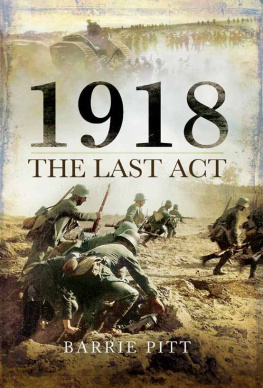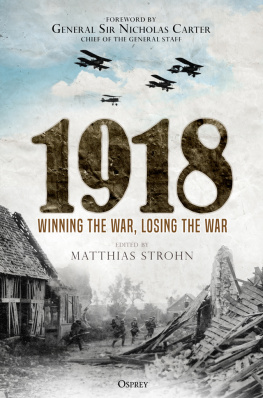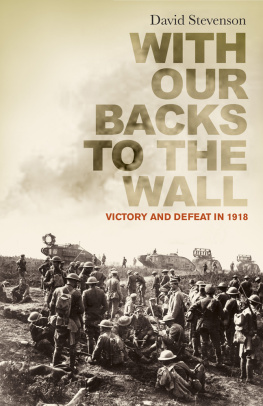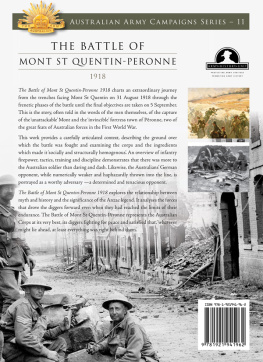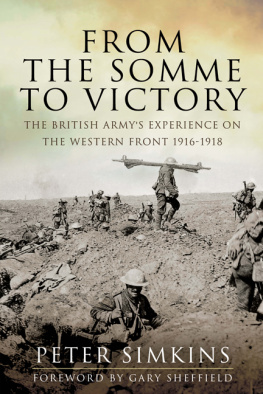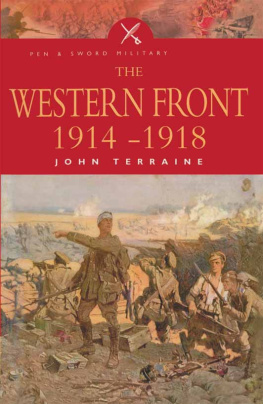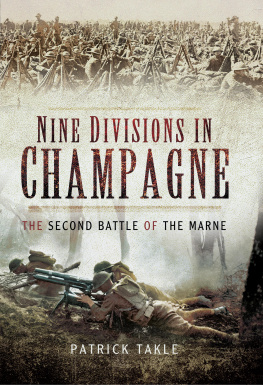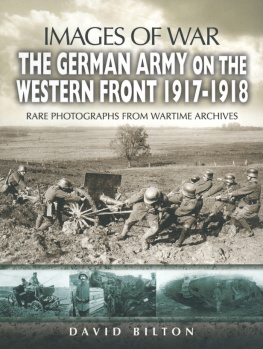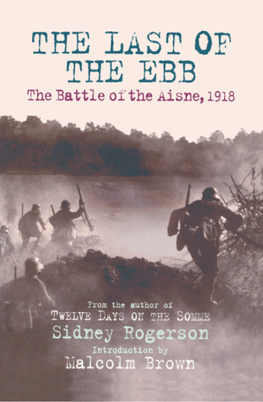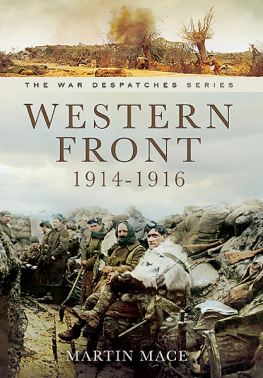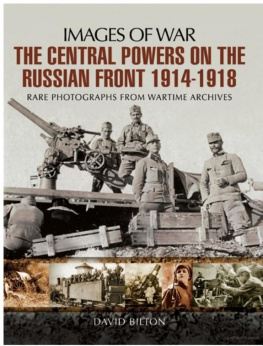
PEN & SWORD MILITARY CLASSICS
First published in 1962 by Cassel Co Limited
Published in 2003
and re-printed in this format in 2013 by
Pen & Sword Military
an imprint of
Pen & Sword Books Ltd
47 Church Street
Barnsley
South Yorkshire
S70 2AS
The right of Barrie Pitt to be identified as author of this work has been asserted by him in accordance with the Copyright, Designs and Patents Act 1988.
Copyright Barrie Pitt, 2003, 2013
ISBN:- 978-1-4738-3476-7
A CIP catalogue record for this book is available from the British Library.
All rights reserved. No part of this book may be reproduced or transmitted in any
form or by any means, electronic or mechanical including photocopying, recording
or by any information storage and retrieval system, without permission from the
Publisher in writing.
Printed and bound in the UK by CPI Group (UK) Ltd, Croydon, CRO 4YY
Pen & Sword Books Ltd incorporates the Imprints of Pen & Sword Aviation,
Pen & Sword Family History, Pen & Sword Maritime, Pen & Sword Military, Pen
& Sword Discovery, Wharncliffe Local History, Wharncliffe True Crime,
Wharncliffe Transport, Pen & Sword Select, Pen & Sword Military Classics, Leo
Cooper, The Praetorian Press, Remember When, Seaforth Publishing
and Frontline Publishing.
For a complete list of Pen & Sword titles please contact
PEN & SWORD BOOKS LIMITED
47 Church Street, Barnsley, South Yorkshire, S70 2AS, England
E-mail: enquiries@pen-and-sword.co.uk
Website: www.pen-and-sword.co.uk
TO
JOHN MICHAEL CHARLES
JOHNNYMIKE
THE LAST OF THE LINE
WITH LOVE
Authors Note
I WOULD like to record my gratitude to the many people who have helped me during the writing of this book. The officials of many Public Libraries especially those of Reading and Basingstoke have co-operated to a degree, as have the owners of several private collections of books and papers.
For his help in the time-consuming task of research through a wealth of material I am greatly indebted to Mr. V. A. Mosey; and to Wing Commander P. W. G. Burgess, O.B.E., Mr. F. Wallwork, Mr. F. P. Ridsdale, and especially Captain B. H. Liddell Hart, I owe thanks for reading my typescript and correcting my errors of syntax and fact. For the preparation of that typescript from my own virtually indecipherable notes, I must express my gratitude to Miss Shirley White.
And for her faith, hope and charity throughout that period of domestic chaos which seems inevitably to engulf us as soon as book-writing commences, I must once again thank S.D.P. Without her, the book could not have been written.
BARRIE PITT
Contents
Illustrations
Unless otherwise indicated, all photographs are
the property of the Imperial War Museum.
R T.H.P.L. - Radio Times Hulton Picture Library
Maps
* * *
WHEN Europe went to war in 1914, it did so in a mood of joyous certainty. Both sides were confident that their causes were just, that their armies were invincible, and that their consequent victories would be glorious, overwhelming and practically immediate. So inexhaustible are the springs of human optimism that it was some time before the nations as a whole realized that the war was not progressing in accordance with their first ingenuous suppositions, and that they would be called upon to pay for their days of splendid ardour throughout years of pain and anguish. National reserves of fortitude and endurance were to be drawn upon to the full, and Germanys dominance among the Central Powers increased as time passed.
Among the Allies, however, the relative seniorities of the partners subtly altered. Russia and France had possessed the enormous forces which first flung themselves upon the enemy in August 1914, when Britains contribution was her Navy (in Continental eyes of no account) and an original expeditionary force so small as to enable her own propagandists to coin the historic appellation contemptible little army, and then to attribute its origin to her foes. Time was to alter this, and by 1916 Britain had an army in the field which Germany recognized as the major block to Kaiserlich ambitions. Britain had thus replaced France as the senior partner on the Western Front; but although the power had changed hands, the philosophy remained the same.
For years before the war, the official policy of the French Army had been based upon the Spirit of the Offensive with which their soldiers had been thoroughly imbued and time and occasion combined to infect their British ally with the same principles. When, eventually, the French were to pause and reflect upon the wisdom of their creed, their erstwhile junior partners regarded them with a disdain not unmixed with malice, and assumed the tradition of the offensive themselves. Victory, however, still eluded them, but in a moment of doubtful inspiration was produced the Doctrine of Attrition which, if lacking in imagination, possessed the supreme appeal of simplicity. All it required for its operation and success was an unlimited supply of men for the trenches and Britains Empire was vast.
But by the end of 1917, it was becoming evident that even Britain could not afford such wild extravagance as that in which her army commanders had been indulging. True, the enemy had suffered considerably as a result of the vast conflicts which had been forced upon her, but despite these losses there was as yet little sign of disintegration among the Central Powers. Russias losses had been even greater than Germanys, Frances losses had come near to crippling her. Europe was thus on the verge of bankruptcy and a bankruptcy far more vitiating than one to be declared in some centre of commercial law, for it was of blood and spirit, of manhood and human hopes. Grim despondency was the mood which now dominated the peoples of the warring nations not yet plunged into defeatism, but unable to perceive the means of victory.
Yet two events had occurred in 1917 which would offer the golden prize, first to the Central Powers, then to the Allies.
In March had begun the Russian Revolution. It did not immediately release German and Austrian divisions from the Eastern Front indeed the Russian General Brusilov was to launch yet another offensive against them but it was obvious to the German rulers that by early 1918 they should be able to concentrate their strength in the West. In order to expedite the Russian collapse, the German Government even allowed the passage of Lenin across the country (in a sealed carriage, like some dangerous bacillus), for they knew that if they were to grasp their chance of victory, they must do it quickly. Germanys chance was now, for in April had occurred the second event which might well serve to snatch victory from her: America had entered the war, and her vast potential of men and materials would undoubtedly tip the scales against the Central Powers if given the time to do so. So it became a race, against time for Germany, for time for Britain and France.
As 1918 dawned, half in fear and half in hope, Europe looked towards America. She alone seemed to possess the key to the situation. Whether she would arrive in time to turn it was another matter.
* * *
IT was bitterly cold in the trenches during the last fortnight of the year 1917 and there were many successive days of frost. Snow mantled the ground, softening the edges of the trenches, the gun-pits and the shell-craters, covering for a while the ugly detritus of bitter fighting. For most of the men in the line it was to be remembered as a good time, for they had learned by now the best ways of keeping warm, and hard ice was infinitely preferable to the treacherous, stinking and engulfing mud in which they had fought and bled during the last interminable months. It was quiet, too, the armies on both sides more concerned with their own comfort than with enemy disturbance.

